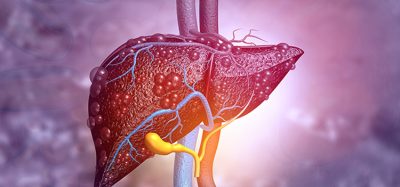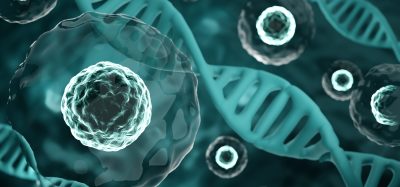The promise of therapeutics from molecules within our body
Posted: 16 May 2024 | Dr Alla Arzumanyan (SFA Therapeutics), Dr Ira Spector (SFA Therapeutics), Dr Mark A. Feitelson (SFA Therapeutics) | No comments yet
In this article, senior leaders at SFA Therapeutics emphasise the importance of re-establishing homeostasis in drug development approaches.


The body’s ability to maintain homeostasis in chronic inflammatory and autoimmune diseases is a defining feature of good health, and a goal is largely neglected by modern medicine. Patients deserve better than just symptom management. Symptom-based treatment is often accompanied by undesirable side effects. This suggests that the field of drug discovery is primed for a paradigm shift in the fundamental strategy of how diseases are treated. Drug development, driven by courageous ambition and the resolution of diseased states, instead should be focused on re-establishing homeostasis.
The body already contains a wide array of molecules with the ability to maintain homeostasis. These molecules represent a largely untapped reservoir of therapeutic potential because they have undergone millions of years of evolutionary selective pressure to efficiently serve the function of maintaining homeostasis. Homeostasis is a balance between pro-inflammatory cytokines and cytotoxic T cells (required to eliminate pathogens) and anti-inflammatory cytokines and T regulatory cells (that mitigate inflammation), so that chronic tissue destruction does not occur.1,2 The application of endogenous compounds is a highly pragmatic approach for the creation of disease-modifying therapies.
There is also a link between chronic inflammation and an altered bacterial composition in the gut (dysbiosis). These microorganisms make metabolites that play important roles in (1) food and drug metabolism, and (2) human health. Dysbiosis and imbalance of appropriate metabolites are associated with an increased risk for various chronic human diseases, such as obesity, cardiovascular diseases, diabetes, inflammatory bowel disease and depression. Further, microbial metabolites contribute importantly to immune system regulation, which impacts cellular and immunological homeostasis.3,4
Drug development for chronic inflammatory and autoimmune diseases has often focused on the discovery and optimisation of compounds originating from outside of our body. Although the final products show efficacy in human clinical trials, most of them have very significant side effects and have unfavourable toxicity profiles. Most of these drugs target both normal and diseased tissues because they have not undergone evolutionary selection to target only diseased tissues. Concerted efforts in drug companies to optimise the therapeutic efficacy of these compounds and minimise their side effects have had limited success. Most of all, the great majority of commercially available therapeutics only treat symptoms and not the underlying root and cause of the disease. In contrast, molecules developed into drugs from our body have been evolutionarily selected to maintain or re-establish homeostasis with limited side effects, thereby promoting health.
A key to the efficacy of compounds derived from our body, such as short chain fatty acids (SCFAs), made by gut bacteria, is that they simultaneously normalise multiple inflammatory pathways that drive disease pathogenesis.5 Selected SCFAs accomplish this by acting as histone deacetylase inhibitors (HDACi), by regulating central signalling pathways of cellular growth and death in a variety of cell types and organs (e.g., in liver, lung and brain). There is evidence of cross-talk between SCFAs and central nervous system. Alterations in the latter has been implicated in the pathogenesis of Alzheimer’s and Parkinson’s diseases, and Autism Spectrum Disorders.6
There are several examples of commercially available therapeutics that have been derived from molecules in our body. Examples include insulin for the treatment of diabetes and human somatotropin to promote physical growth. Blood clotting factors are used to treat haemophilia. Currently, gene therapy is being developed to correct inborn errors of metabolism, primary immune-deficiencies, and other types of diseases where the genetic lesion is defined.7 Autoimmune diseases represent promising indication for drugs derived from out body which can restore a state of homeostasis. Current therapies focus on immunosuppression, which results in susceptibility to new infections, reactivation of prior infections, and susceptibility to selected cancers. This is because immunosuppression compromises immunological surveillance and effector cell functions necessary to maintain health. SCFAs are capable of immunomodulation8 with effective treatment, not immunosuppression which treats symptoms and has multiple potential side effects.9 Thus, re-establishing homeostasis is an important approach to achieve treatment with limited or no significant side effects.
A rigorous understanding of the biology of how molecules within our own body establish and maintain homeostasis is the path to move forward in drug development. We live in a time where the tools to fine-tune these molecules are readily available and offer an unprecedented opportunity to develop treatments which restore the body to a natural and healthy state.
References
- Richert-Spuhler LE, Lund JM. The Immune Fulcrum: Regulatory T Cells Tip the Balance Between Pro- and Anti-inflammatory Outcomes upon Infection. Prog Mol Biol Transl Sci. 2015;136:217-43. doi: 10.1016/bs.pmbts.2015.07.015.
- Wautier JL, Wautier MP. Pro- and Anti-Inflammatory Prostaglandins and Cytokines in Humans: A Mini Review. Int J Mol Sci. 2023;24(11):9647. doi: 10.3390/ijms24119647.
- Wang L, Cai Y, Garssen J, Henricks PAJ, Folkerts G, Braber S. The Bidirectional Gut-Lung Axis in Chronic Obstructive Pulmonary Disease. Am J Respir Crit Care Med. 2023;207(9):1145-1160. doi: 10.1164/rccm.202206-1066TR.
- Susmitha G, Kumar R. Role of microbial dysbiosis in the pathogenesis of Alzheimer’s disease. Neuropharmacology. 2023;229:109478. doi: 10.1016/j.neuropharm.2023.109478.
- Wang J, Zhu N, Su X, Gao Y, Yang R. Gut-Microbiota-Derived Metabolites Maintain Gut and Systemic Immune Homeostasis. Cells. 2023;12(5):793. doi: 10.3390/cells12050793.
- Silva YP, Bernardi A, Frozza RL. The Role of Short-Chain Fatty Acids From Gut Microbiota in Gut-Brain Communication. Front Endocrinol (Lausanne). 2020 Jan 31;11:25. doi: 10.3389/fendo.2020.00025.
- Fischer A. Gene therapy for inborn errors of immunity: past, present and future. Nat Rev Immunol. 2023;23(6):397-408. doi: 10.1038/s41577-022-00800-6.
- Fusco W, Lorenzo MB, Cintoni M, Porcari S, Rinninella E, Kaitsas F, Lener E, Mele MC, Gasbarrini A, Collado MC, Cammarota G, Ianiro G. Short-Chain Fatty-Acid-Producing Bacteria: Key Components of the Human Gut Microbiota. Nutrients. 2023;15(9):2211. doi: 10.3390/nu15092211.
- Chen M, Fu W, Xu H, Liu CJ. Pathogenic mechanisms of glucocorticoid-induced osteoporosis. Cytokine Growth Factor Rev. 2023;70:54-66. doi: 10.1016/j.cytogfr.2023.03.002.
About the authors
Dr Ira Spector, Chief Executive Officer and Co-founder, SFA Therapeutics


Dr Ira Spector is the Chief Executive Officer (CEO) and Co-founder of SFA Therapeutics. He has over 30 years of experience in the pharmaceutical and biotechnology industry, assisted in the development of 34 therapeutic drugs, and co-founded four startups prior to SFA. Dr Spector earned his PhD at the University of Medicine & Dentistry, NJ (Rutgers), and his MBA at Drexel University.
Dr Mark A. Feitelson, Chief Scientific Officer and Co-founder, SFA Therapeutics


Dr Mark Feitelson is the Chief Scientific Officer (CSO), and Co-founder of SFA Therapeutics; he is also the Co-inventor of SFA’s therapeutic technology. Dr Feitelson is a tenured Professor at Temple University and a world-class expert in liver disease. He has been an advisor to numerous companies and holds over 35 years of research experience. Dr Feitelson earned his PhD at UCLA Geffen Medical School.
Dr Alla Arzumanyan, Chief Development Officer and Co-founder, SFA Therapeutics


Dr Alla Arzumanyan is the Chief Development Officer (CDO) and Co-founder of SFA Therapeutics. She is also the Co-inventor of SFA’s therapeutic technology. She is an Associate Professor of Research at Temple University, with over 25 years of research experience, and is an expert in stem cell cancers, Hepatitis B Virus, and the gut microbiome. Dr Arzumanyan earned her PhD in Biotechnology at Yerevan University in Armenia.
Related topics
Drug Development, Drug Targets, Molecular Biology, Therapeutics
Related conditions
autoimmune diseases, Cardiovascular disease, Inflammatory disease, Obesity
Related organisations
SFA Therapeutics








